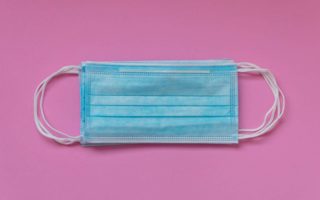
Over the last several months, masks have become part of our daily lives. Whether you’re going to visit family or shopping at the grocery store, chances are you’re now wearing a mask to help protect yourself and others from COVID-19. Many people, though, still have questions about using face masks for COVID-19 and what they can do to offer themselves maximum protection. Here’s what you need to know about the different types of face masks and which ones are best for minimizing the spread of the SARS-CoV-2 virus.
First, Let’s Look at How Masks Reduce COVID-19 Spread
Before getting into which masks are best for COVID-19, let’s briefly consider how they actually work to prevent it from spreading. The primary purpose of wearing a face mask is to reduce the wearer’s chances of spreading COVID-19 to others. Because the disease can be asymptomatic or very mild in some people, it’s relatively easy for people to spread it without even realizing they have it. A facial covering, though, reduces this risk by capturing most of the virus before it can drift out into the open air and infect others. In other words, a mask is more meant to protect others than to protect the person wearing it.
With that said, there is some evidence that wearing a mask offers the wearer limited direct protection. A growing body of research suggests that by capturing some of the viral particles a person would otherwise inhale, a mask can reduce that person’s chance of becoming seriously ill. This is because the amount of the virus that you inhale has a direct result on how sick you’ll become. Reducing viral load by even a small amount can improve your chances of having only a mild case if you do contract COVID-19.
How Well Do Different Masks Work?
Now that we know how masks work, let’s take a look at how well different types of face masks for COVID-19 work. The most effective types of masks are N95 respirators. These masks actively filter out virus-sized particles, providing a high degree of protection to the wearer. However, the FDA does not recommend these masks for use by the general public, as they are considered essential protective equipment for front-line healthcare workers.
For most people, the most readily available masks will be cloth facial coverings and surgical masks. While neither of these have the capabilities of N95 respirators, both offer reasonable protection against the spread of COVID-19. In general, a surgical mask will be better than a cloth face covering made with a loose material, such as as scarf or t-shirt. With that said, studies have shown that cloth masks made out of denser cotton (180+ threadcount) actually achieve a higher level of filtration than surgical masks.
Just as thick fabric can make a mask more effective, thin materials can make it much less effective. Thin neck gaiters, adopted by many as a breathable alternative to heavy cotton masks, have actually been shown to be as bad or possibly worse than wearing no mask at all. Similarly, thin bandanas have been shown to have little effectiveness in preventing the transmission of COVID-19, despite covering the face.
What Mask Should You Be Wearing?
Overall, the best choices are thicker cloth masks and surgical masks. If you aren’t sure whether your cloth mask is made of a sufficiently dense fabric, it’s probably best to reach for a surgical mask, since it will give you a fairly reliable degree of protection.
In addition to using face masks for COVID-19, it’s also important to follow all other recommended guidelines to slow the spread of the disease. Rigorous hand washing and proper social distancing help to amplify the effects of masks in reducing disease transmission.